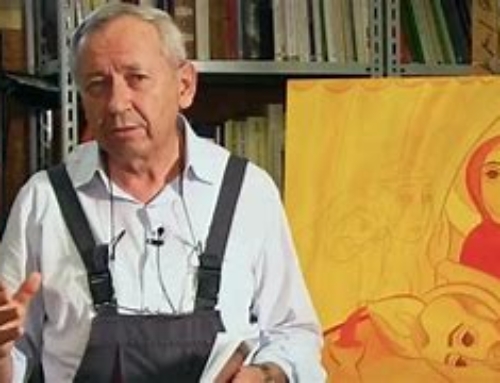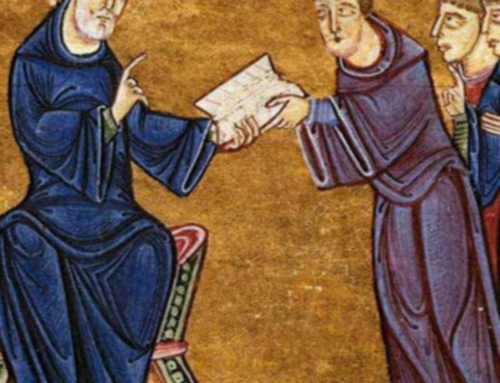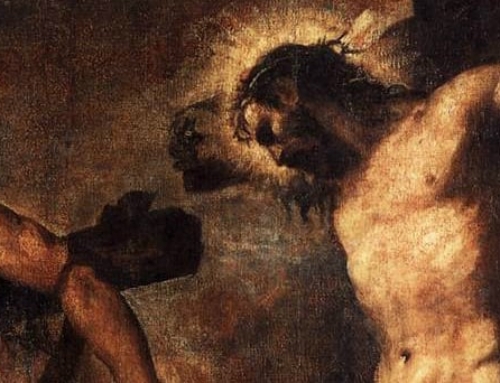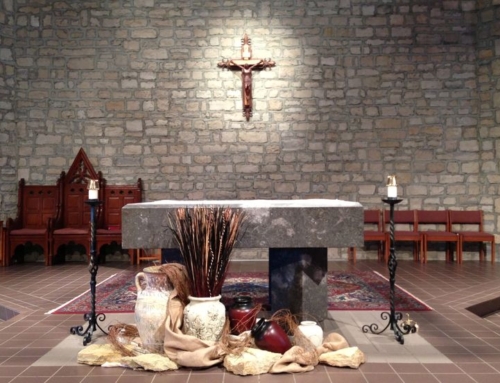I’ve been a Catholic now for over 25 years and I have to admit that our religion–as a culture–still has some pretty amazing blind spots, and one of them is the issue of wealth and poverty.
There is a lingering idea that somehow it is a blessing to be poor and a curse to be rich. Yes, I know Jesus said “Blessed are the poor.” But did he? In fact he said, “Blessed are the poor in spirit for theirs is the kingdom of heaven” The poor in spirit are the penitent souls–the humble–the ones who say, “Lord Jesus Christ, Son of the Living God, Have Mercy on me a Sinner.” Humility and repentance are the marks of the poor in spirit.
The false idea that poverty is itself a blessing is linked to an underlying Manicheanism which still haunts the Catholic faith. Manicheanism, in case you’ve forgotten, was the dualistic teaching of the false teacher Mani a third century Persian teacher who synthesized elements of Babylonian myth, Buddhism, Zorastrianism, Christianity and Judaism. Manicheanism was a big influence in the development of Christian monasticism. One of the central tenets of Manicheanism (like all dualistic systems) is that the physical world is inferior to the spiritual world. Two things result from this which are opposite reactions: asceticism and hedonism. Its logical: if the material world is inferior it doesn’t ultimately matter what you do with it. Asceticism (in which the early monks went overboard–[check out St Simeon Stylites] is an attempt to negate the physical world with all its desires and rise up to the spiritual realm. Hedonism takes the opposite tack: if the material world doesn’t really matter then you can abuse it for your own pleasure because it is not going to last anyway.
Obviously these two reactions to dualism will clash in any religious system, and so they did in the church time and again. So, in the thirteenth century the church hierarchy was wealthy, corrupt and decadent and this hedonism sparked the pushback of St Francis who famously embraced “Lady Poverty” The huge popularity of Francis has led to a misunderstanding about poverty that still mocks the true faith: that somehow or other poverty is itself a blessing. No. Poverty is not a blessing–otherwise why do we work so hard to rid the world of poverty? A religious vow of poverty is a sign of contradiction by one who deliberately eschews wealth and hedonism to be properly devoted to God.
Neither does the attachment to poverty necessarily produce sanctity. Poverty in and of itself can be a false god and produce rank hypocrisy. We all know of the obese Franciscan whose poverty has not stopped the sin of gluttony of the “Poor Clares” who are really the “Not Poor Clares.”
But is wealth therefore necessarily a curse? It can be. Certainly Jesus teaches that the rich man finds it harder to get to heaven. However, when the wealthy are generous and responsible to the poor and are philanthropic their wealth is a source of great blessing in the world. Again, the wealth in and of itself, is not a crime. The crime is the greed and lust for more, more, more which deprives others.
The current fashionable cause for the poor and criticism of the rich is often a misplaced virtue which is no more than envy.
I love St Francis, but his “Lady Poverty” is so easily misunderstood. It romanticizes poverty and I reckon it has been used by the rich and powerful to keep the poor in their place. Another detrimental side effect of the glorification of poverty is the false idea that (because poverty is a virtue) everything in church should be just as cheap as possible thereby, by extension, making poor quality, cheapness and poor taste into a virtue. Thus, in the spirit of what I call “faux Franciscanism” cheap nasty auditoria are thrown up which we call churches. They are furnished with cheap, poor quality plywood furniture and decorated with mass produced plastic statues and cheap, mass produced icons. Of course I realize there are many communities that genuinely cannot afford good stuff, but there is no virtue on the other hand of being cheap for its own sake.
Finally, in this debate I have always preferred the way of St Benedict to that of Francis. The Benedictine monk does not take a vow of poverty, but the Rule stipulates that he is to have no personal possessions. The monastic community, on the other hand, can own property, buildings and the goods of life and these are to be enjoyed by the brothers according to their worth. The Benedictine way is one of proper Christian detachment rather than total poverty.
Christian detachment is not the dualistic rejection of the physical goods and the material world, but a proper appreciation of all things. The 17th c poet Thomas Traherne summed it up by saying, “Can a man be just unless he love all things according to their worth.” In other words, When your priorities are right and God is first in your life you will be able to know the worth of everything else and love those things accordingly.
To put it another way, “Seek first the Kingdom of God and everything else will be added unto you.”
I’ve written on the same subject from a different perspective here. If you would like to learn more about the Way of St Benedict or How St Benedict.Changed the World there are two six session video courses here on my blog/website. These are available to Donor Subscribers at the Promotion Level and above.







Without disagreeing with what you have said, it is good to point out that Jesus did state in Luke’s version of the beatitudes, “Blessed are the poor” (Luke 6:20). Jesus also identifies with the poor at the last judgement (Matt. 25:35-40), as you noted a few days ago as one of five solid ways of seeking “our daily Jesus”:
“The third is in the person of the poor. This certainly includes work with the homeless, prisoners, immigrants, but also anyone who is in need–the unborn, women in crisis pregnancies, the elderly, the neglected, the lonely, the sick and dying…”Whatever you did for these you did for me.” So in the person of the poor we meet our daily Jesus.”
The Franciscan ideal is extreme, but its reality embraces the joy of detachment from, not necessarily the rejection of, worldly goods. It is necessary to keep a balanced perspective.
No, poverty is not a blessing. Today the word “poverty” conjures up squalor, hunger, disease, and destitution: in other words, it has become synonymous with “extreme poverty.” This is indeed the kind of asceticism St. Francis idealized with his courtly love characterization of Lady Poverty. In his romanticism, he wanted only the Jesus of the Gospels; nothing else was needed, nothing else could satisfy. Recognizing that his was an impossible discipline, today Franciscans aspire to simplicity of life, paring possessions down to the point of satisfying needs without becoming distractions from the love of God. This is what we might today term “subsistence poverty.”
My thought is that Jesus was referring to the “working poor,” those living at the “subsistence poverty” level, when he blessed the poor in Luke’s version of the Beatitudes. These were blessed because they had to work hard and honestly to earn their daily bread. This left them little time for the idleness that might invite the devil’s temptations, and little “disposable income” to acquire luxuries that could corrupt them. It was in these ways that poverty blessed them, for perhaps it promised a surer, straighter path to heaven.
No one romanticizes poverty in today’s world, because through the media we have been exposed to the ugliness of extreme poverty. Those living at a subsistence level are perhaps less obvious to us, and this hiddenness is perhaps another aspect of their blessing.